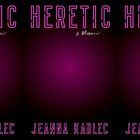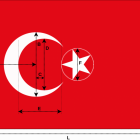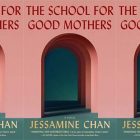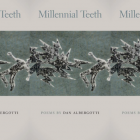“When does that line between the real and imagined begin to blur?”: An Interview with Sulaiman Addonia

Sculpted from scenes of an upended life and a childhood obstructed by loss, Sulaiman Addonia’s Silence is My Mother Tongue, perhaps in defiance of expectations, sings with the confidence of characters who believe that they are going to end up somewhere better, someday, even if they have to wade through the mire to get there. Laid on the unstable ground of the refugee camp where Saba and her mute brother, Hagos, are forced when their country is swept into war, the novel is a reckoning with identity, family, culture, and existence—what it means to exist, and to keep existing, in the face of personal and societal disintegration.
Born in Eritrea, Addonia, who has Eritrean and Ethiopian heritage, spent a portion of his own childhood in a refugee camp in Sudan, spent his teens in Saudi Arabia, and eventually sought asylum in London with his brother and was educated there, at University College London; he lost both his parents before the age of four. Though Saba’s narrative bears a striking resemblance to Addonia’s own childhood experiences and birthright the novel, however, is made from broader strokes and intended to spill much further out. Saba doesn’t stand for Addonia. She is everything in the world that is uprooted yet attempts to grow, much like the orange seeds she plants in the harsh and shrewd soil of the camp, hopeful to coax them into beautiful trees even as they wither under the relentless sun. Saba wants school, friendships untainted by the tangled snarls of the camp, and a family who can live and learn and be free to mature into love and light. While it seems she might never get any of these, she never stops trying. As a result, Saba embodies a pinprick of hope glimmering amid a shroud of open toilets, ghastly nourishment, and emotional upheaval.
Silence is My Mother Tongue, published in the UK in 2018 and longlisted for the 2019 Orwell Prize for Political Fiction (following Addonia’s debut novel, The Consequences of Love (2008), which was shortlisted for the Commonwealth Writers’ Prize), allows us a window into refugee existence. When Saba, Hagos, and their mother seek shelter in Sudan’s refugee camp, they take with them only the possessions they can get past the officials with minimal bribes. Once they are in the camp, food and clothes are acquired mostly as a result of barter, supplementing the poorly distributed handouts brought sporadically by English aid-workers. Compounding its lack of decent shelter and personal space, its minimal food and resources, the camp is also rife with disparities of wealth and plagued by jealousies and bitter relationships. “She was worried that if she blinked everything would be erased again,” Sulaiman writes. “That the vastness of the journey that started on camels many days ago would return. Saba held on to the dashboard and focused on the image in front of her.”
Saba, a strong and driven girl, and Hagos, a beautiful mute boy who has yet to learn to read or write, endure this dusty wave that life has cast their way, persevering as they mature, growing up as the world around them continues to fester, loving each other as best they can amid the tumult of a wholly uprooted existence, their family hold a different perspective than most—the torn allegiance of a dual-country background: “For Eritrean-Ethiopian Saba, half from an occupied country and the other half from the occupying, the conflict was ongoing. Half of her was at war with the other half. That’s why she was in a camp.”
Saba, Hagos, and the rest of the camp’s inhabitants try to distance themselves from the horrendous conditions of camp life, and in many such instances use illusion as the tool of choice. It hangs alongside a sheet strung and cut to frame the world like a private motion picture. It holds peacefully in lines carved in the sand to stand for an imaginary mosque. It rests in the vacuous innards of a cardboard television Saba and Hagos’s camp-mate Jamal uses for soap opera type puppet scenes played loudly with drama and sex: “Saba and Hagos arrived at a dimmer part of the square where Jamal placed the cardboard box, his television, on a stool, next to an oil lamp shining from an adjacent stool,” we see. “The children jumped up and down, urging Jamal to hurry up. Saba sat next to Hagos in the front row. Mosquitoes buzzed in and out of the open TV box. The little actors are here. Let’s wave.” While the novel gives us innumerable examples of what is missing from the refugees’ lives, all the way down to Hagos’s reluctant voice, the camp combats each with a bout of illusion, a tactic to conquer the absences, a way to quell the sadness of what is missing, and to enliven what remains: their lives.
This, accompanied by the novel’s longlisting for the Orwell Prize for Political Fiction, may make Silence is My Mother Tongue seem like an explicitly political novel. Addonia, however, does not view it that way. The conflict of countries and cultures is the spark that ignites the action, but we are never privy to the war proper, only its consequences in the lives of these characters. Addonia also continually brings our focus to camp-centered activities and characters—the mid-wife, the search for employment with more wealthy refugees, the sexual secrets—as opposed to widening that gaze to political assertions of right or wrong, this country versus that one. The refugee encampment is not a microcosm of political intention. It is people, each one striving to move forward. At one point, an old man in the camp tells Saba: “People have confused being a refugee with the end of life, he said. They have mistaken being in a camp with being inside a graveyard. We are human beings. We have our needs wherever we are. But I shouldn’t blame you all. I am not young and have suffered the misfortune of war and exile a few times already. I have learned never to leave my desires behind me in the ruins.” The man’s words echo what Saba has been feeling all along. Amidst all the world has thrown her way, all that it seeks to pummel her with, all it uses to devour her and her family, Saba has held her own, has in fact grown and evolved and matured. She is sure that there is a future for her, somewhere, somehow.
I recently spoke with Addonia about the misunderstood blending of “real life” with imaginative writing, illusion as both tragic obstacle and point of hope, and works of great influence on his life and his writing.
J. A. Tyler: Silence is My Mother Tongue details a world that many readers won’t have existed in personally, but for you, it connects with a distinct reality. How is the fiction of this novel informed by your life experiences?
Sulaiman Addonia: In the past, I used to be defensive answering this question. I always thought, Here we go again, why is my imagination not valued for what it is? It felt to me that I wasn’t getting credit for my writing, because, writing about a world many readers don’t know about, it was always reduced to “a real-life experience.” But I started to look at this question differently after I moved from London to Brussels in 2009. In those years, I isolated myself and left the world of writing behind me. I lived with books, with ideas and my imagination, more than with people. I have come to value my imagination. It is really what kept me together, be it in the camp, in Saudi Arabia, and in London, to which I had arrived as an unaccompanied minor refugee. I have worked to sharpen it over the years and my work is paying dividends now. So nowadays, I see questions like this as a compliment actually, a tribute to my imagination that is the only constant in my life. And I’m calm anyway, maybe because I also now have a much more nuanced understanding of an imagination. In a sense, yes, it can certainly be shaped by life experiences.
JAT: Illusion is a super interesting motif in the book, from Jamal’s TV and cinema screen to the mosque as a line in the sand. Is fighting against illusion the crux of these character’s lives, or is it what helps them persevere?
SA: Thanks for picking up on that. I value illusion and I actually think of it as a main character in my novel in the way it is present, as present as Saba and Hagos, from the beginning of the book to its end. When I get asked about illusion, I am always reminded of something the great Italian director Federico Fellini said: “I see no line between the imaginary and the real.” But the interesting thing for me is: when does that line between the real and imagined begin to blur? Does it happen when you start to experience a loss of some kind, a loss of home, or family, like my characters in this book? I don’t know. My reality was tied to a loss from the beginning, from when I lost my country when I was not even two, both of my parents before I turned four, and so maybe that was when illusion settled inside me, when it became my oasis or some sort of a companion. Perhaps illusion can be a way of being for many. So, when I think about your question, I wonder if more than fighting against illusion, my characters seem to embrace it.
JAT: In a recent interview, novelist Matthew Salesses said, “All novels are political because language is political; living is political.” Silence is My Mother Tongue was longlisted for the 2019 Orwell Prize for Political Fiction. Was this novel always intended as a political feat, or did that facet more so evolve alongside the story of Saba and Hagos?
SA: I don’t have the mindset of a political novelist. On the contrary, I have done a lot of work, actually years of hard work, to free my mind from the need to follow a particular set of ideas, ideologies, principles, no matter how important these are or how much I personally believe in them. I am subservient to the story only. Not to the readers, not to publishers, not to family, countries, or even myself. I am loyal to my characters alone. If the story becomes political, so be it; if not, then not. I have, I believe, transcended my body and everything in my world, when I was writing Silence is My Mother Tongue, and so, no, the novel wasn’t intended as a political feat, and I have no idea if the politics evolved alongside the story, as you put it.
I think, generally, I am averse to the need to set out a discourse as a writer and come out with the need to claim “politics” as your ultimate goal. I’ll fight for the right of writers to write anything they want. I value freedom to my core. The issue I have is that writers with my background—black, African and refugees—are expected to be political, come out and say they are activists, that they are a voice for this or that. There is so much pressure from our people back home and from the Western media. If you look at those with influence—those who have the power to make a writer’s career—then the message is clear: your craft is appreciated, applauded only if you explicitly put politics in your art, and come out and say you are an activist of some kind.
I remember after I published my first novel, many wrote me asking: Sulaiman, why are you writing about sex and love in Saudi Arabia? I value serious topics as much as I value the trivial. When I lived in our remote refugee camp as a child, there was an old man, a storyteller. The adults hated him because he refused to offer his storytelling talents to the service of their fight, which was about using art to mobilize support for the Eritrean freedom fighters fighting the independence war against Ethiopia. They considered him trivial, child-like. But to us children living in isolation, surrounded by tragedies, his magical stories were our savior, the wonder that made us smile and feel alive with all our wounds. He was our Melquíades, the head of a gypsy caravan that brings ice and beauty to Macondo in One Hundred Years of Solitude. I actually wrote about this at length in Brittle Paper.
JAT: You reference One Hundred Years of Solitude, and I’m curious: what are some of the greatest literary influences for you, in terms of your writing and your personal existence?
SA: I sometimes seem to confuse some people when I say that my mother, who couldn’t read and write, is one of my greatest literary influences. But she is. I’m convinced the descriptive side of my writing comes from her. That’s because when we lived in the camp in Sudan, she used to send us tape letters from Jeddah, where she worked as a live-in domestic servant for a Saudi princess. And in those tapes, as well as improvising songs for us, my brother, sister, and I, she would also describe her daily life in Jeddah, the palace where she lived, in detail. Her power of description was astounding that I felt I could picture her in her world far away from mine.
But when we talk about literary influences, we must take into account that access to books is a privilege. As a child, I spent 8 years in a refugee camp where we had no libraries, and as a teen, I lived in Saudi Arabia, where we had to risk our lives to read banned books. Well, my brother is my hero. Because, when we were in Jeddah, he befriended a Sudanese intellectual and a book smuggler. My brother, also a writer, started bringing home banned novels. Our library was under our bed, hidden from our family and the Saudi authorities. And some of these books included work by Tayeb Salih, Nawal El Saadawi, Charles Dickens, Victor Hugo, Naguib Mahfouz, Virginia Woolf. So, throughout my life, and in the absence of books, I learned to read people, read the sky, the moon, the forest, the river, paintings, music, eyes, read the air, read the Universe. So, yes, I have many writers to thank for being an influence, such as work by Zora Neale Hurston, Anne Desclos, Toni Morrison, Eimear McBride, Roberto Bolaño, Ismail Kadare, Clarice Lispector, Marguerite Duras, Georges Bataille, but I am also grateful to nature in that it gives me endless pages of poetry to read every single day.
JAT: Where are you headed now as a writer? Are you working on a new project or is there a different path in front of you for the time being?
SA: As well as writing my next novel, set in Kilburn, London, I am working on the third edition of the festival I founded in 2019, the Asmara-Addis Literary Festival (In Exile), and I’m also planning new masterclasses of the Creative Writing Academy for Refugees and Asylum Seekers, which I set up here in Brussels a few years ago. Besides that, I am managing a literary prize I co-founded with my friend the Swiss poet, and the founder of The Specimen Press, Vanni Bianconi. The prize—To Speak Europe in Different Languages: Hybrid and Collective Writing Competition—aims at recognizing the wounds and wonders of language, in order to endorse and enhance the border-crossing, category-defying qualities of our contemporary world.



